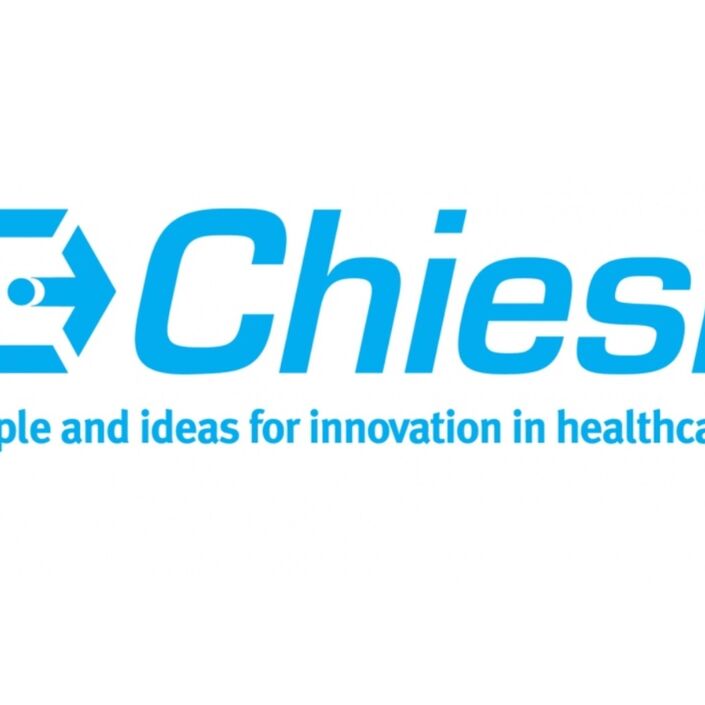Chris Course
Management of respiratory distress syndrome in preterm infants: the changing experience in Wales
Respiratory Distress Syndrome (RDS) is the commonest diagnosis after premature birth, a result of immaturity of the lungs. Management for RDS often requires invasive and non-invasive respiratory support, supplementary oxygen and surfactant therapy. We aimed to describe trends in management before and after introduction of a new national guideline in Wales on RDS management.
Significant improvements in management of RDS in preterm infants were seen, particularly regarding mechanical ventilation, yet some practices such as delayed cord clamping struggle to be embraced. Despite large volumes of high-quality evidence, some elements of best practice are yet to be adopted consistently. Further work should focus on education and training.
Elke Reunis
Look after yourself and your colleagues - debrief! Steps to formalise the debriefing process on the neonatal intensive care unit
Research shows that debriefing aids recovery and promotes resilience. So why are we not routinely debriefing in neonatology? Our aim was to create an environment where regular debriefing occurs across the multidisciplinary team in our tertiary NICU. Our survey results showed us that there was a real hunger for “regular debriefs as part of everyday practice.” With this came the call to action for “more training,” to “educate staff to expect debriefs,” and design a “formal debriefing protocol” and “guideline.” These suggestions allowed us to remodel the culture around debriefing. Our approach empowered staff to ask for debriefs, and informed our design of clinical debriefing guidelines. Regular multidisciplinary team hot and cold debriefs on our NICU have received positive feedback from the team and highlighted clinical and non clinical events suitable for future simulation practice and training.
Watch Elke's debriefing video here.
Hannah Wood
National UK survey identifies the need for training among perinatal post mortem consent takers
All parents should be offered a post mortem examination of their baby. In 2016, MBRRACE-UK reported that post mortem was offered in 81.3% of neonatal deaths but consent from parents was obtained in only 28.6%. Our network’s experience is similar with offer and uptake rates as low as 67% and 18% respectively in some units. Published evidence identifies multiple barriers to consent including issues related to training. In our region, pathology training days are too infrequent to meet demand. Lack of knowledge among consent takers impacts the uptake of post mortem. A national online survey was designed to gather information on health professionals’ current experiences of consent taking. The uptake of perinatal post mortem remains low. Our national survey identified that the Sands prerequisites for consent takers are not being met and highlights the need for standardised training. We have developed a multi-model e-learning training package that will be freely available to consent takers. We anticipate this will improve health professionals’ ability to offer post mortem and subsequently impact uptake rates positively.
Mahesh Tammali
Reduction in duration of long-term oxygen therapy in babies with chronic lung disease with a new weaning protocol
The number of cases of chronic lung disease and babies discharged on long-term oxygen therapy (LTOT) have been increasing. There is a significant variation in the strategy of oxygen withdrawal due to lack of specific evidence, therefore there is a lack of consensus on best practice. Within University Hospitals Leicester, a time-based weaning protocol was followed until December 2015. From January 2016, a new protocol was trialled where weaning was based on clinical condition of the baby and overnight oximetry study (OOS) result. The aim of the study was to assess the clinical and economic impact of the new weaning method compared to the previous protocol. Structured monitoring and weaning based on clinical parameters led to shorter duration of LTOT and significant cost benefits in addition. The new protocol was recommended to revise O2 weaning guidelines in our centre.
Jennie Barrett
Administration roles within a Quality Improvement project
In June 2017, the Norfolk and Norwich University hospital became involved with the ATAIN (Avoiding Term Admissions in NICU) project looking at our number of term admissions and how they could be reduced. This is a project that many other Neonatal Units have been involved in but each unit have found their own way to manage the project. Our project is led by a Neonatal Consultant and a Data Administrator. It is unusual to have someone in an Admin role lead on a project like this. The role of Admin staff is often overlooked within a clinical setting however, admin staffs are the backbone off all units ensuring the smooth running and functioning of the unit. The number of term admissions has dropped by 3% in our unit within 1 year. The audit is continuing and we are confident that we will continue to reduce the number of term admission to NICU. The Data Administrator has been pivotal in orchestrating the audit. The real success of our project has been down to the organisation, dedication and adaptability that the Data Administrator has shown to ensure the project delivered on its goals. The clinical staff input was limited allowing them to carry out other clinical duties. Admin staffs are a vital cog in the Neonatal team. Respect them and involve them, they want to help.
Liam Willgress
Fentanyl pre-medication for less invasive surfactant administration
Less invasive surfactant administration (LISA) is being increasingly used as an alternative to endotracheal surfactant administration, however the optimal premedication dose and agent for LISA is unclear. We reviewed our unit's experience with using routine fentanyl sedation for the LISA procedure in the NICU. We found that Fentanyl 100 mcg/kg achieved satisfactory pre-medication before LISA in only 50% of babies. This dose failed to adequately sedate a significant minority (40%), yet caused prolonged apnoea in one baby (10%). Fentanyl may not, therefore, be the ideal pre-medication for LISA. Randomised trials are required to determine the optimal drug and pre-medication regimen for LISA in preterm babies.
Samantha Edwards
Achieving early enteral feeding within 8 hours of birth: a series of quality improvement initiatives over 5 years in a tertiary NICU
The importance of providing early enteral feeds to premature babies has become more apparent. Offering early breast milk contributes to gut maturation and feed tolerance. There is evidence that delaying feeds, conversely, can be associated with prolonged hospital stays and an increased incidence of late onset sepsis. Over the last few years we have undertaken a multi-faceted quality improvement project which has led to significant improvements to early feeding in premature babies admitted to our unit. For example, the percentage of babies nil by mouth on the first day of life was halved between 2014 and 2016; and in 2018 all eligible extreme premature babies received expressed milk on the first day of life . The number of babies receiving exclusive maternal breast milk on day one was doubled from 12.5% to 22%. The average time to first enteral feed in our unit is now 7 hours, reduced from 18 hours in 2012. There has also been a much greater use of early donor milk (13% vs 31%). This has been a result of many interventions working in parallel. The most important factor in the success of this project has been evolving staff understanding and support of early enteral feeding through positive leadership and reinforcement at all levels.
Paul Cawley
Retrieval and Transport of Cooled Infants: 1 year regional service analysis
Therapeutic Hypothermia (TH) initiated within 6 hours of birth reduces death and disability in infants with moderate or severe Hypoxic Ischaemic Encephalopathy (HIE). Effectiveness of TH initiated after 6 hours is less certain. In the UK, infants requiring TH are centralised. Our network criteria for TH include evidence of perinatal asphyxia plus encephalopathy on examination and Cerebral Function Monitoring (CFM), interpretation of which is dependent upon the referring centre. We provide intensive care transport and clinical advice for our level 1 and 2 units. We have increasingly requested referring units send CFM traces to us to aid our clinical advice. We performed an analysis of our retrieval and advice service over the past year. A significant number of infants requiring TH are outborn and need uplift to tertiary centres. Correct interpretation of CFM can be difficult, but is vital for treatment decisions. Transport teams and receiving centres are able to remotely aid in decision making and may offer ‘fresh eyes’ for CFM interpretation. This may be especially prudent in infants where TH is not being initiated.
Radu Clapuci
Late-onset sepsis rates before and after introducing routine prophylactic lactobacillus and bifidobacteria probiotics: 10-year review
Meta-analyses show that giving routine probiotics reduces necrotising enterocolitis (NEC) in preterm infants. The impact of probiotics on late-onset sepsis (LOS) is less clear. Our aim was to compare rates of LOS in 5-year epochs before and after implementation of routine daily multi-strain probiotics administration to high-risk neonates. Following a single centre retrospective observational study over a 10-year period, we found that routine use of multi-species Lactobacillus and Bifidobacterium combination probiotics appears safe. Administration of Lactobacillus and Bifidobacterium probiotics has been associated with a halving of LOS rate in our centre. As observational data, these results could also reflect other improvements in care during the study period. Probiotics may help prevent LOS in high-risk preterm neonates but a large randomised control trial is needed to address this question.
Rebecca Calthorpe
Noise exposure remains a significant problem for preterm infants undergoing ambulance transfer
Preterm babies have an increased risk of poor neurodevelopmental outcomes, as well as hearing impairment. Excess noise exposure is a concern for babies who undergo ambulance transfer. Noise exposure has been shown to cause physiological instability with fluctuations in heart rate, blood pressure and oxygen desaturations in respond to sound. This predisposes babies to fluctuations in cerebral blood flow, potentially increasing their risk of intraventricular heamorrhage (IVH). Our aim was to establish current noise exposure on the NICU compared to during ambulance transfer for babies less than 72 hours old and less than 32 weeks gestation. We recorded noise levels both inside and outside the incubator for the duration of a transport journey, as well as on the neonatal unit. We found that noise exposure continues to be a problem, especially during transport, with levels consistently above the recommended level of 45dBA, with peaks up to 30dB above the background noise. We are currently redeveloping the neonatal transport system in Nottingham to improve comfort for the baby focusing on vibration and noise reduction.
Sonal Datir
Can we reduce neonatal admissions due to jaundice?
Neonatal hyperbilirubinemia is a common cause for neonatal admission in term and preterm infants. These infants are primarily managed on postnatal wards, however, they require admission to a neonatal unit due to jaundice above the exchange level, rapidly increasing bilirubin levels, pathological jaundice, or sepsis. Failure to initiate and establish adequate breastfeeding can play an important role in development of severe jaundice. The aim of this project was to evaluate the management of infants admitted to our neonatal unit with jaundice, including the feeding practices, and identify areas of improvement to reduce admissions. This was a retrospective observational project including infants born at ≥ 35 weeks admitted to neonatal unit at District Hospital with a diagnosis of jaundice between 2017-2018. We found that there is a scope to decrease admissions due to jaundice by optimising feeding support and management of jaundice on postnatal wards/ community in the presence of risk factors. Appropriate management of jaundice in near term infants in transitional care setting is important thereby reducing separation of mother and baby. Opportunities to support breastfeeding/ lactation on postnatal ward and neonatal unit are often missed. Effective measures should be taken to promote support at all levels.


